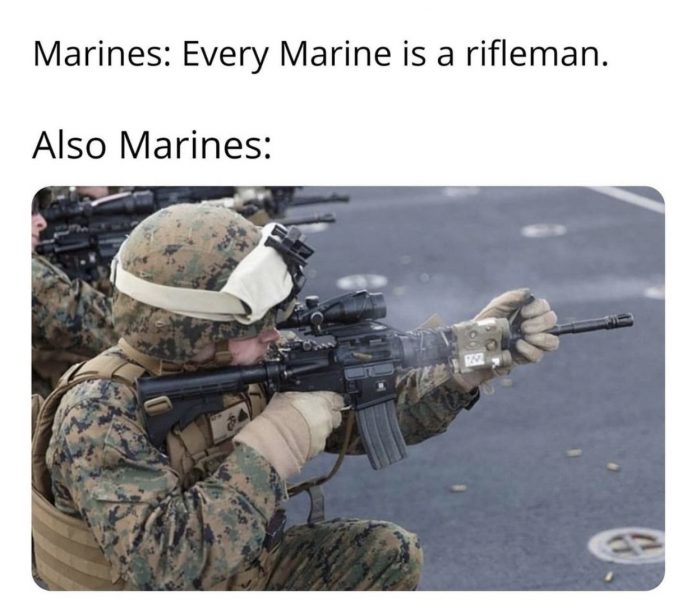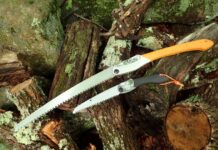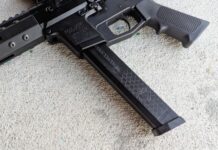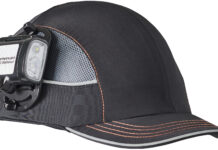
Gather round readers,
Let us dig into the tales, once again, of the skilled user scale. It is a perpetual battle we are waging but I am slowly seeing the gains take hold in the critical spaces they need to, the hearts and minds of service members, police officers, and veterans. But if you are not one of those categories this knowledge benefits you as well. It lets you take the advice of someone using their overarching job title of ‘cop,’ or ‘soldier,’ or yes even ‘Marine’ to project an expertise they do not possess.
These are the “Qualified” Novices.
These are the people who have completed a program of study designed to be a minimum acceptable standard, and in some cases were handed a badge that stated boldly and artistically “Expert” upon it.
So it isn’t always the Novice’s fault, they were told they were an expert but people they trust know these things. In many instances these people will be pulled to teach as ‘Experts’ by their leadership who won’t take the effort to find actual experts and are simply looking to repeat the bare standards through copy paste, not promote true competence. This ignores so many facets of the teaching process and has set up soldiers, sailors, airmen, and yes even Marines, for failure.
The saving grace for the Marines is that their ‘Novice’ standards are actually fairly thorough and the force takes pride in it, I haven’t observed that ethos from any other branch. While the Army pretends to, their actions often produce the opposite effect and soldiers grow disinterested as their leadership says one thing and proves another by short stacking them and compounding failure upon failure into just another check in the box. The stories I hear out of Navy and Airforce circles show even less emphasis on proficiency within the service and that is only disrupted when a leader places atypical emphasis on the topic. I don’t know enough about Space Force phaser quals yet to comment.
Last year, while helping Guard members train, I had never seen soldiers that engaged in the process for my entire 3 years in the Guard. I know the apotheotic attitude is pervasive and deep seated, I talk with people who are trying to change it.
There is Nothing Wrong with being a Novice
Shooting skills are a developed discipline, there are no shortcuts. Does talent play a factor? Yes. Does having good eyes and a healthy constitution help? Absolutely. Can technology make it easier? Definitely. But none of these things substitute for 1,000 good repetitions of the shot process with live rounds on a target.
Nothing helps you get better at calling a shot in the wind like doing it. Nothing substitutes for refining you zero at distance like doing it. Nothing helps you bust your own misconceptions and bad habits like ironing them out during live fire.
Nothing helps you hit the target better than repeatedly hitting the target, and understanding how you did that.
Quality time at 25m
While 50 or 100 gives you more flexibility, 25m of distance can be used very effectively. For handgun skills, 3m, 5m, 7m, 10m, all very useful for pushing to 25m, 50m, and 100m. 25m can be used to push for 300m and beyond when done correctly with rifles. Don’t let a lack of ‘range’ on your range keep you from practicing, scale your practice.
It’s that ‘correctly’ that is continuing to trip up units and hamper troops, especially newer ones who were pushed through abbreviated programs where they learned effectively nothing. You have troops sitting there with middle and senior leaders saying “You’re qualified,” and many of them thinking “The f*ck I am!?” and having it compounded into them that novices are experts, and if they question it they are told to shut up and “figure it out.”
Less ‘Figure it out’ and more time actually figuring it out. On the range. With live rounds.
With a selection of very simple drills and no more than 25 meters of distance people can be brought from novice to competency. We can have people stop looking at their carbines and sidearms like strange barely recognized machines and more like the reliable tool that they are. We can make it so that it doesn’t matter if the Guard, or Marines, or Reserves are standing around without a magazine in their rifle looking a bit ridiculous because the people holding them can make them ready on demand, they are competent. [That isn’t to say a Con3 or Con1 weapon wouldn’t be faster, they would, but it would still be a significant force improvement]
Clint Smith put it most succinctly in my opinion. “Everyone needs to know these things on an AR-15, how to load it, unload it, fix it, zero it, and hit a pie plate at 25 yards.”-paraphrased. That’s it, that is 90% of the win right there, everything else can be built on that foundation. Long distance shooting, CQB, unconventional positions, offhand shooting, offside shooting, barrier work, working around vehicles, it all comes back to rest on the basics that we are failing to cement.
Not just have trainees complete these things and check the box, have them know them. These are the tasks you can practice with that short range, these are the things people who rely on these tools need to know. They need to be able to perform on demand. And these are where we are failing in our emphasis in these training programs, pumping out “qualified” novices instead of competent shooters. This failure is from leadership, letting things slide and turn into checks in boxes instead of life saving skills.
We can do better. We know how. Now we focus on doing it.



